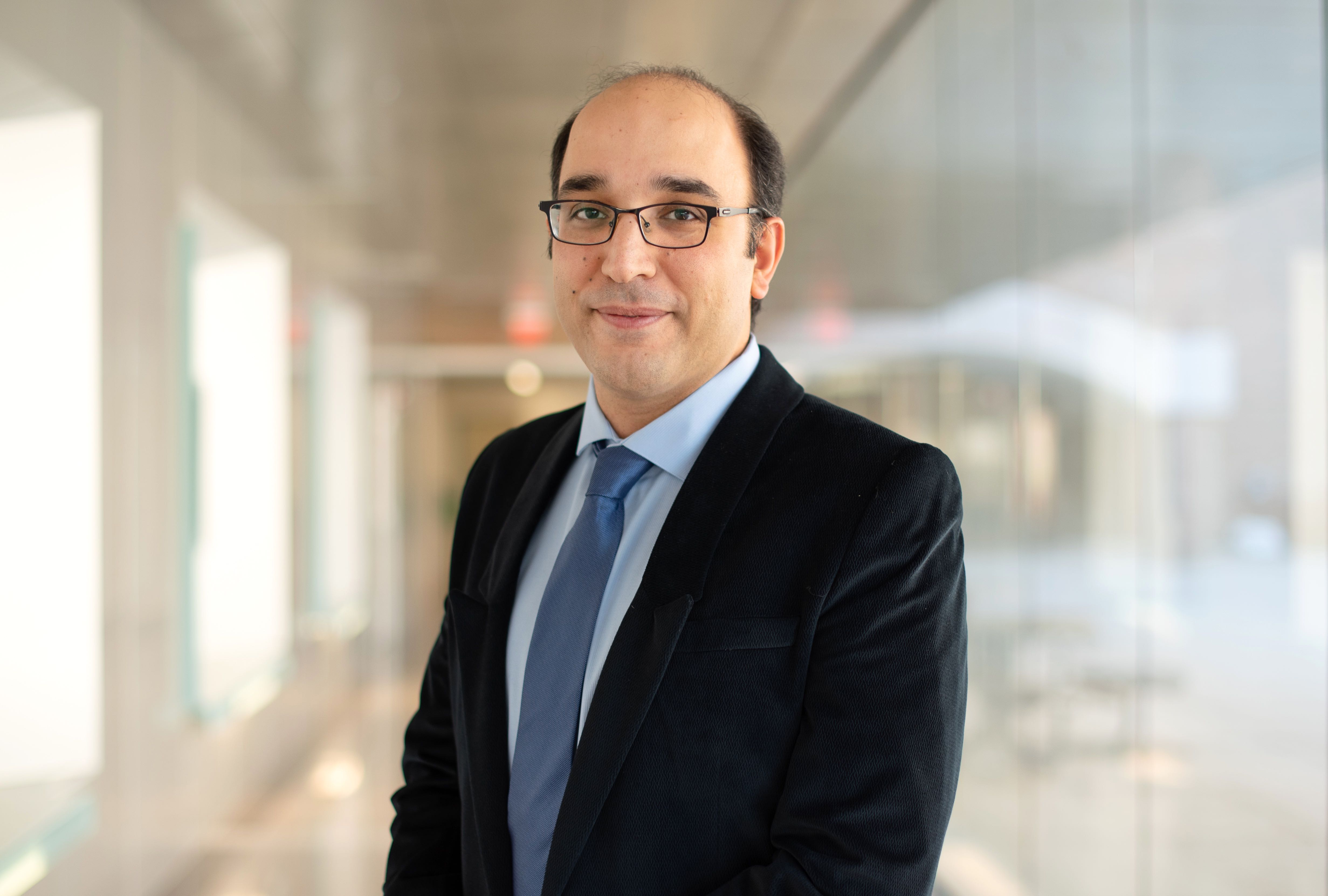Hessam Mahdavifar receives CAREER award to empower next gen communication
Mahdavifar is preparing for a future of billions of connected devices and an unprecedented increase in mobile traffic.

 Enlarge
Enlarge
Prof. Hessam Mahdavifar has received an NSF CAREER award to support research on solutions for reliable communications across future wireless networks.
In the next decade, the emergence of massively connected networks of billions of devices will lead to an unprecedented increase in mobile data traffic. This research aims to develop enabling technologies for reliable and scalable communications over such massive wireless networks. It will also propose a novel paradigm for compression and computation methods, which can significantly reduce the cost of storing and processing massive datasets.
The project is called “Coding Subspaces: Error Correction, Compression, and Applications.” It addresses fundamental questions about coding in the subspace domain, including the dual problems of channel coding and source coding and their applications to the next-generation communication and computation systems. It’s expected to provide knowledge, techniques, and qualitative insights that will contribute to the foundations of coding and information theory. It will also establish a new connection between information theory, coding theory, wireless communications, and data science through the lens of subspaces.
Classical approaches to communications over wireless networks involving conventional link-level block coding, channel estimation, and successive interference cancellation fall short of addressing diverse requirements for the next generation of wireless networks. A new paradigm is needed with solutions that must be scalable considering the massive network size and the increasing number of antennas and nodes. They must also be able to recover from interference, node failures, and deficiency of the network.
Mahdavifar’s project proposes solutions based on subspace coding where the information is embedded into certain subspaces of an ambient vector space, as opposed to conventional block coding. Subspace coding enables reliable and scalable communications over networks in a non-coherent fashion. The goal is to provide a comprehensive study of subspace codes, including error correction in the analog domain, compression, and dimensionality reduction.
Mahdavifar previously received two NSF grantsfor research on channel coding for next generation 5G and beyond.
Additional Information
According to NSF, “The Faculty Early Career Development (CAREER) Program is a Foundation-wide activity that offers the National Science Foundation’s most prestigious awards in support of early-career faculty who have the potential to serve as academic role models in research and education and to lead advances in the mission of their department or organization.”
Mahdavifar’s award is in the NSF Division of Computer and Information Science and Engineering.